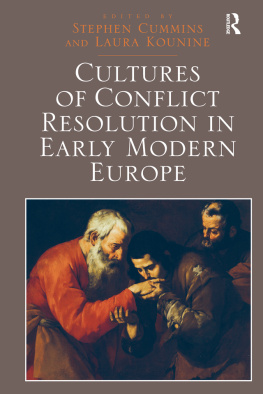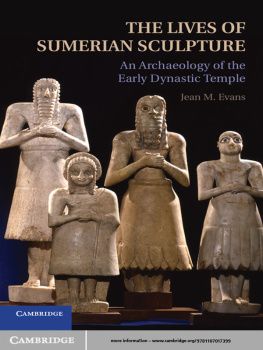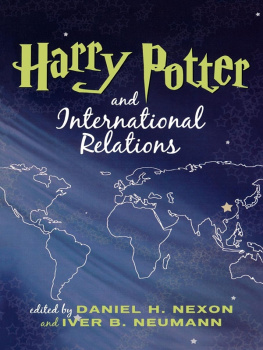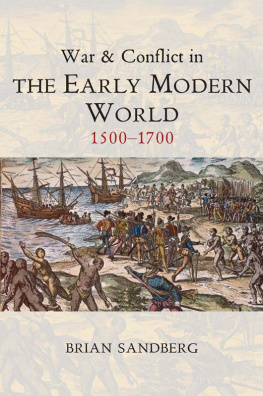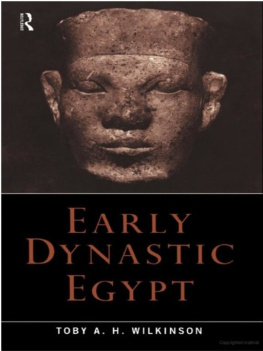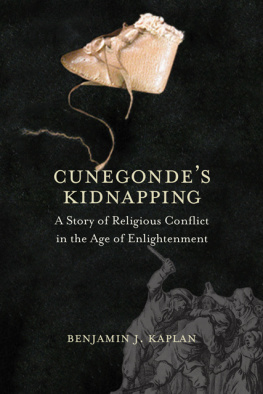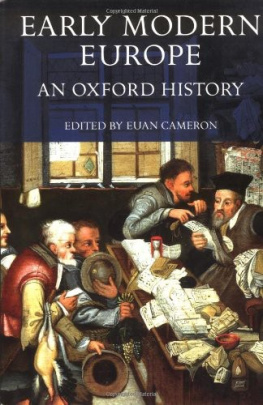
The Struggle for Power in Early Modern Europe
PRINCETON STUDIES IN INTERNATIONAL
HISTORY AND POLITICS
SERIES EDITORS
G. John Ikenberry and Marc Trachtenberg
RECENT TITLES
The Struggle for Power in Early Modern Europe: Religious Conflict,
Dynastic Empires, and International Change by Daniel H. Nexon
Strong Borders, Secure Nation: Cooperation and Conflict
in Chinas Territorial Disputes by M. Taylor Fravel
The Sino-Soviet Split
by Lorenz M. Lthi
Nuclear Logics: Contrasting Paths in East Asia and the Middle East
by Etel Solingen
Social States: China in International Institutions, 19802000
by Alastair Iain Johnston
Appeasing Bankers
by Jonathan Kirshner
The Politics of Secularism in International Relations
by Elizabeth Shakman Hurd
Unanswered Threats: Political Constraints on the Balance of Power
by Randall L. Schweller
Producing Security: Multinational Corporations, Globalization, and the
Changing Calculus of Conflict by Stephen G. Brooks
Driving the Soviets up the Wall: Soviet-East German Relations, 19531961
by Hope M. Harrison
Legitimacy and Power Politics: The American and French Revolutions in
International-political Culture by Mlada Bukovansky
Rhetoric and Reality in Air Warfare: The Evolution of British and American
Ideas about Strategic Bombing, 19141945 by Tami Davis Biddle
Revolutions in Sovereignty: How Ideas Shaped Modern International
Relations by Daniel Philpott

The Struggle for Power
in Early Modern Europe
RELIGIOUS CONFLICT,
DYNASTIC EMPIRES,
AND INTERNATIONAL CHANGE
Daniel H. Nexon

Copyright 2009 by Princeton University Press
Published by Princeton University Press, 41 William Street, Princeton: New Jersey 08540
In the United Kingdom: Princeton University Press, 6 Oxford Street,
Woodstock, Oxfordshire OX20 1TW
All Rights Reserved
Library of Congress Cataloging-in-Publication Data
Nexon, Daniel H.
The struggle for power in early modern Europe : religious conflict, dynastic empires, and international change / Daniel H. Nexon.
p. cm. (Princeton studies in international history and politics)
Includes bibliographical references and index.
ISBN 978-0-691-13792-6 (alk. paper) ISBN 978-0-691-13793-3 (alk. paper)
1. EuropePolitics and government15171648. I. Title.
D217.N49 2009
940.232dc22 2008042219
British Library Cataloging-in-Publication Data is available
This book has been composed in Sabon
Printed on acid-free paper.
press.princeton.edu
Printed in the United States of America
10 9 8 7 6 5 4 3 2 1

This book is dedicated to
the memory of Charles Tilly
Contents
Figures and Tables
FIGURES
TABLE
Preface
I BEGAN THIS PROJECT with the aim of demonstrating the significance of the Reformations in the development of the sovereign-territorial state and system. But as I pushed further into history and theory, its focus changed dramatically. I realized that the historical evidence, in fact, undermined the contention that the Reformations played an expansive role in the emergence of sovereign territoriality. I also discovered that, for all the energy expended by international-relations scholars on this issue, few had even scratched the surface of an important puzzle: why the Reformations produced a crisis in the European political order. I could make sense of this puzzle, furthermore, by treating the Reformations era as a case of translocal and trans-state religious contention interacting with the dynamics of resistance and rule in composite polities that, in turn, had more in common with empires than with nation-states.
Although I always thought this insight important, it took on added significance in the aftermath of the September 11, 2001, terrorist attacks on Washington, D.C., and New York City. Scholars, pundits, and policymakers developed a renewed interest in the nexus between international relations and religion. The American-led invasions of Afghanistan and Iraq placed the concept of empire back on the agenda. While I argue against attempts to unproblematically generalize from past experiences to contemporary concerns, I cannot deny that the events of the last few years profoundly inflected the final form of this study. At the very least, my findings challenge some important assumptions about both of these issues in the policy and international-relations literatures.
This book also engages with international-relations theory, particularly as it relates to the analysis of international change. Many of my specific arguments about the impact of the Protestant Reformations on European politics, appropriate forms of comparative-historical generalization, and the entire question of whether the period under study comprises a case of international change derive from a theoretical approach I term relational institutionalism. I have some doubts about introducing such a neologism into the vocabulary of the discipline. Not a few among those who have commented uponor even served as reviewers ofearlier drafts, have questioned why I do not simply use the existing terms relationalism or historical institutionalism to describe my approach.
The fact that some see my approach as fundamentally relationalist while others see it as ultimately historical institutionalist provides at least some justification for concluding that neither existing body of work, on its own, captures its analytic sensibilities. I offer other reasons for this conclusion, at least implicitly, in the body of the book. But the conjunction also provides a constant reminder, at least for me, of my profound debts to my two primary graduate-school advisors: Ira Katznelson and the late Chuck Tilly. From the former I learned to think as an historical institutionalist, from the latter as a relationalist. I see both scholars as the intellectual parents of this book, and although Ira may not care for the motley offspring found within its pages, Chuck almost certainly wouldnt have. But it represents a mimetic hybrid of the ideas and sensibilities I absorbed from both of them.
I will have more to say about both Ira and Chuck later. For now, let me note that the earliest stages of this project began roughly eleven years ago. Such a long gestation carries with it a mixed blessing. On the one hand, it has benefited from the support of a great many people and institutions. On the other hand, so many debts make omissions in my list of acknowledgments inevitable. To those of you whom I should have acknowledged but forgot to, I apologize in advance.
I completed important parts of this project while a residential fellow at the Center for International Security and Cooperation (CISAC) at Stanford University and at the Mershon Center for International Studies at Ohio State University. The Berkley Center for Religion, Peace, and World Affairs at Georgetown University provided me with crucial intellectual and financial support. I also extend my gratitude to participants in seminars at CISAC, Mershon, the University of Minnesotas Department of Political Science, the Norwegian Institute of International Affairs, the Center for International Studies at the University of Southern California, the Mortara Center for International Studies at Georgetown University, the Lansing Lee Seminar at the University of Virginia, and the Workshop on Contentious Politics and the Harriman Institute at Columbia University.
Next page

